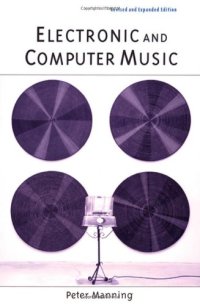
Ebook: Musical Performance: A Comprehensive Approach: Theory, Analytical Tools, and Case Studies
Author: Guerino Mazzola (auth.)
- Tags: Media Design, Algebraic Topology
- Series: Computational Music Science
- Year: 2011
- Publisher: Springer-Verlag Berlin Heidelberg
- Edition: 1
- Language: English
- djvu
This book is a first sketch of what the overall field of performance could look like as a modern scientific field but not its stylistically differentiated practice, pedagogy, and history. Musical performance is the most complex field of music. It comprises the study of a composition’s expression in terms of analysis, emotion, and gesture, and then its transformation into embodied reality, turning formulaic facts into dramatic movements of human cognition. Combining these components in a creative way is a sophisticated mix of knowledge and mastery, which more resembles the cooking of a delicate recipe than a rational procedure.
This book is the first one aiming at such comprehensive coverage of the topic, and it does so also as a university text book. We include musicological and philosophical aspects as well as empirical performance research. Presenting analytical tools and case studies turns this project into a demanding enterprise in construction and experimental setups of performances, especially those generated by the music software Rubato.
We are happy that this book was written following a course for performance students at the School of Music of the University of Minnesota. Their education should not be restricted to the canonical practice. They must know the rationale for their performance. It is not sufficient to learn performance with the old-fashioned imitation model of the teacher's antetype, this cannot be an exclusive tool since it dramatically lacks the poetical precision asked for by Adorno's and Benjamin's micrologic. Without such alternatives to intuitive imitation, performance risks being disconnected from the audience.
This book is a first sketch of what the overall field of performance could look like as a modern scientific field but not its stylistically differentiated practice, pedagogy, and history. Musical performance is the most complex field of music. It comprises the study of a composition’s expression in terms of analysis, emotion, and gesture, and then its transformation into embodied reality, turning formulaic facts into dramatic movements of human cognition. Combining these components in a creative way is a sophisticated mix of knowledge and mastery, which more resembles the cooking of a delicate recipe than a rational procedure. This book is the first one aiming at such comprehensive coverage of the topic, and it does so also as a university text book. We include musicological and philosophical aspects as well as empirical performance research. Presenting analytical tools and case studies turns this project into a demanding enterprise in construction and experimental setups of performances, especially those generated by the music software Rubato. We are happy that this book was written following a course for performance students at the School of Music of the University of Minnesota. Their education should not be restricted to the canonical practice. They must know the rationale for their performance. It is not sufficient to learn performance with the old-fashioned imitation model of the teacher's antetype, this cannot be an exclusive tool since it dramatically lacks the poetical precision asked for by Adorno's and Benjamin's micrologic. Without such alternatives to intuitive imitation, performance risks being disconnected from the audience.